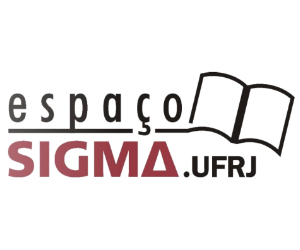It congregates historical research projects that focus on the political phenomenon, i.e., the set of norms, values, knowledge, and beliefs that define the practices and behaviors of the members of a community in this sphere. In an interface, therefore, with the discussions held in the two other lines of research, it incorporates, in the proposed considerations, notions related to political culture, in particular those of memory and identity, to understand and study ideas, movements, and social conflicts, in different times and spaces.
Tematic Sectors
The sector includes professors who are dedicated to the study of political and military conflicts and authoritarian regimes, by focusing on historical reflections on their institutional, political, economic, cultural and ideological aspects. By studying violent historical processes – in their material and immaterial, practical and everyday forms –, the members intend to account for the historicity of the research objects, encompassing different historiographical perspectives.
It studies the experiences of workers and other subordinate groups in different historical periods. The researchers are particularly interested on the complex processes of identity formation, with special attention to the production of class, race and gender differences and their role in social relations of domination and exploitation. In addition to the history of formal and informal organizations and collective actions, a wide range of issues make up the universe of interests of the thematic cluster, including themes such as horizontal and vertical relations of conflict and solidarity, production processes, migrations, the role of urban and rural spaces in the conformation of identities, ways of life and everyday experiences, the multiple cultural dimensions of the universe of popular classes, political disputes, the relations between capital and labor, and the role of social movements in the public sphere and its interaction with the different dimensions of the State. It also studies the various ways in which subaltern groups were seen and represented by artists, intellectuals, public authorities, entrepreneurs, and other social actors with which they interacted in their daily lives.
It congregrates scholars who are dedicated to the study of the presence and impact of violence produced in the contemporary world by events such as modern colonialism, genocides, the great world wars, military dictatorships and state violence in different contexts and modalities. The focus is on studies of trauma, subjectivity, life stories, moral feelings, in their various forms of expression: testimonies, testimonies, letters, diaries, images. It also encompasses studies of memory policies and uses of the past, by focusing on the State, civil associations or individuals, and by critically analyzing historical processes of reparation and transitional justice, such as the creation of Truth Commissions, to broader forms of material and immaterial (re)cognition of violent pasts.
It studies the historical construction of heritage and what this implies for the formation of collective identities and for the political and social debate on cultural assets. The concept is understood within a wide umbrella, and it includes material or immaterial/intangible heritage, built or socio-environmental spaces. By focusing on the concept of heritage and its different temporalities, the scholars in this thematic cluster also conduct research on memory institutions such as museums and monuments, local, regional, or global public policies related to preservation, disputes about what should be remembered and what should be forgotten, and the role of the State, different institutions, and multiple civil society actors in defining what heritage is.








